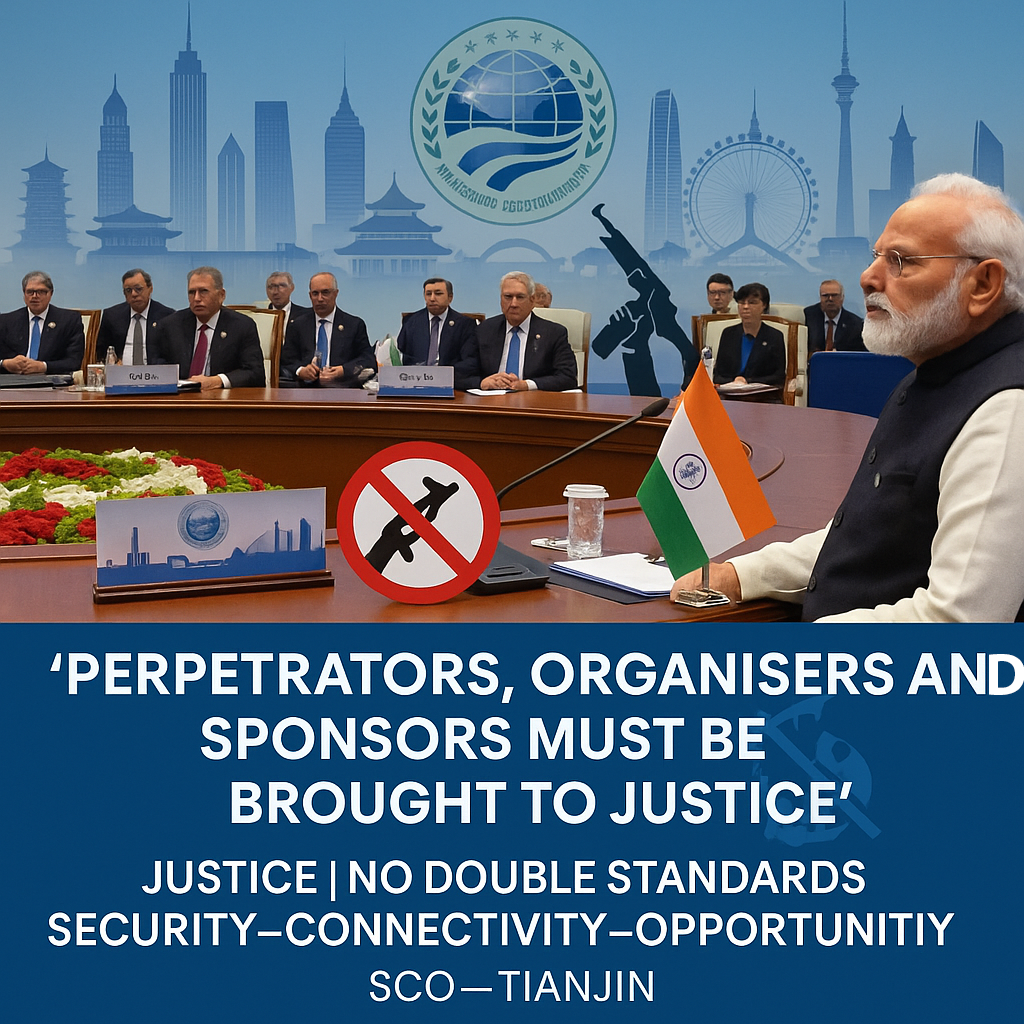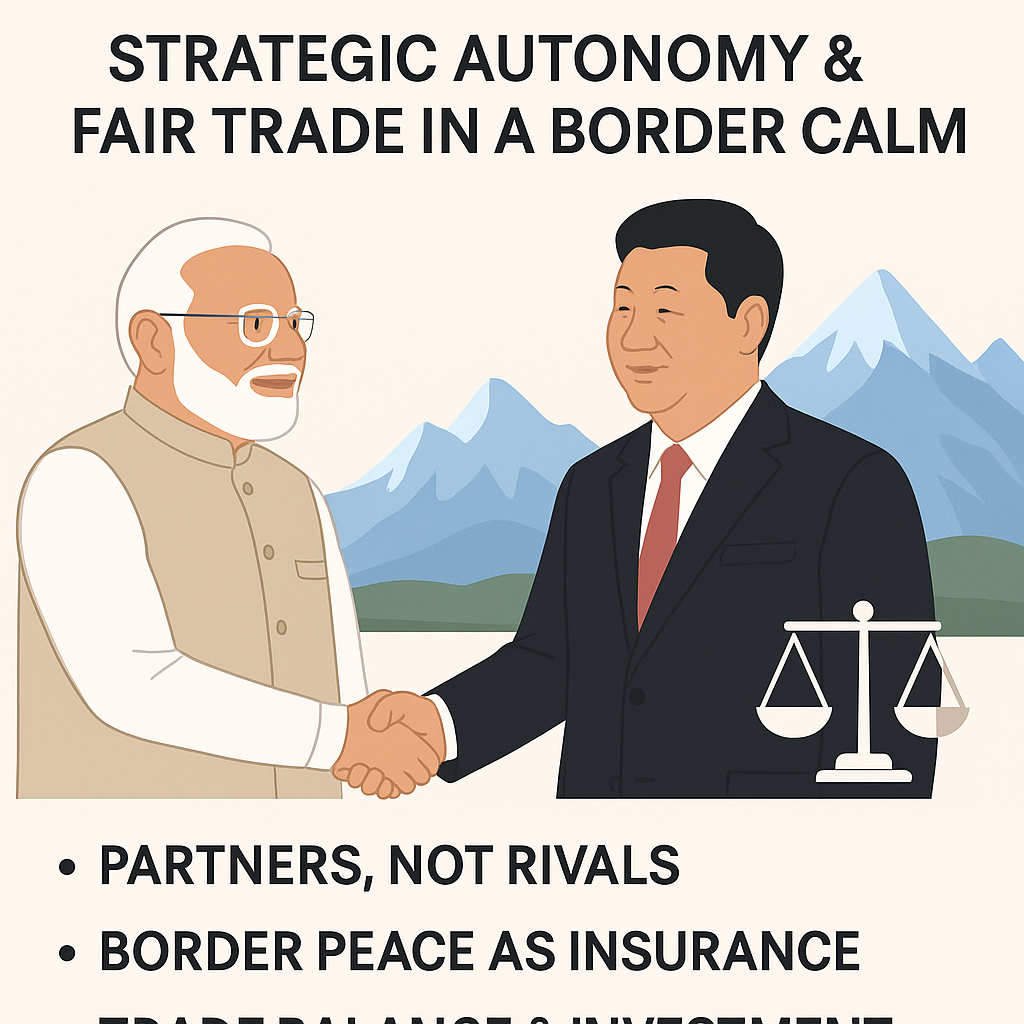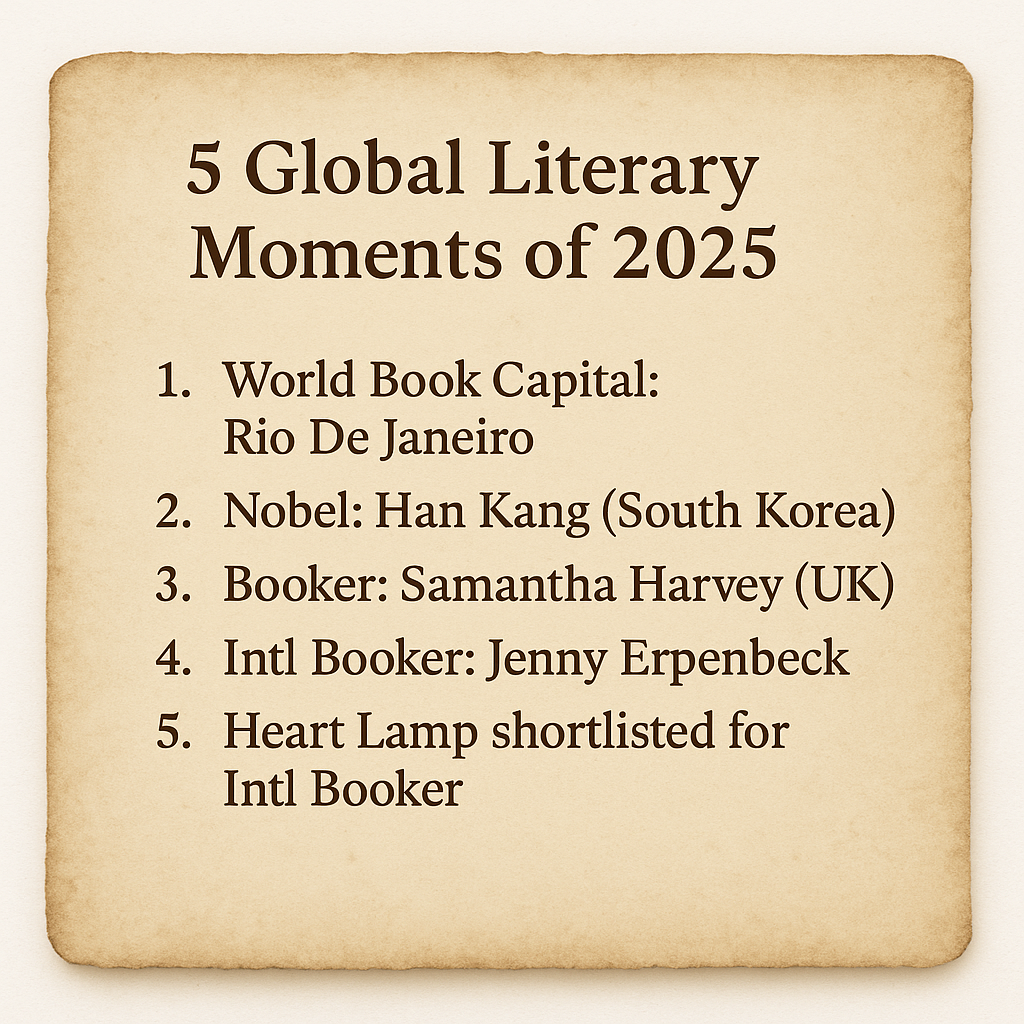Notes, Mains Practice Questions & Essays on YOJANA, JANUARY 2025: Lesson 2
“Decolonization of the Mind Through Indian Knowledge Systems”
🌱Highlight : Attached :
🌀3 Mains Mock Questions (250 words)
🌀2 Full Length Essays (250 Marks)
🪷 THEME: Cultural Revival, Epistemic Sovereignty, Philosophical Identity
🏛️ CATEGORY: Indian Knowledge Systems, Colonial Impact, Educational Reform
📜 INTRO WHISPER
India was once a land where rivers carried verses, and the sky was charted not just by stars but by sages. Yet centuries of colonial rule didn’t just loot resources — it re-scripted how Indians thought about themselves. To decolonize the mind is not to reject modernity, but to re-root it in wisdom. Indian Knowledge Systems (IKS) are not relics of the past — they are maps to a sovereign intellectual future.
🔍 CORE HIGHLIGHTS
🕉️ IKS as Intellectual Foundation
- Philosophy: Vedas, Upanishads, Nyaya, Advaita — exploring self (Atman), reality (Brahman), ethics (Pravritti-Nivritti), and logic.
- Sciences: Zero, decimal system, Ayurveda, and Aryabhata’s heliocentric theory.
- Sustainability: Agro-ecological harmony, water management, forest protection through community models.
📚 Colonial Erosion and Its Effects
- Macaulay’s Minute (1835): Dismantled indigenous education.
- Eurocentric Bias: Indian thinkers reduced to Western parallels (e.g., Chanakya as “Indian Machiavelli”).
- Mental Colonization:
- Edward Said — Orientalist gaze distorted Indian identity.
- Frantz Fanon — Psychological alienation led to internalized inferiority.
🧘 Cultural Evolution and Philosophical Continuity
- Bhakti Movement: Kabir, Nanak, Chaitanya — spirituality in vernacular voices.
- Buddhism & Jainism: Ethical living, compassion, dualism (Jiva–Ajiva), and self-realization.
- Modern Thinkers:
- Vivekananda: Rational, inclusive spirituality.
- Radhakrishnan: Vedantic unity in education.
- Sri Aurobindo: Evolution of consciousness through Indian ideals.
🌱 PATHWAYS TO DECOLONIZATION THROUGH IKS
🔹 Education Reform
- Curriculum inclusion of IKS across disciplines.
- Vernacular medium empowerment and interdisciplinary research hubs.
🔹 Revival of Cultural Identity
- Encourage regional arts, oral epics, traditional medicines, and eco-literature.
- Build pride in India’s indigenous intellectual traditions.
🔹 Global Relevance
- Ayurveda & Yoga: Global symbols of wellness.
- Ecological Wisdom: Community-based, sustainable, and SDG-aligned solutions.
🔹 Philosophical Integration
- Use Nyaya for rational reasoning and Vedanta for balance.
- IKS as tools for navigating ethical dilemmas, mental health, and spiritual disconnection.
🧭 GS PAPER MAP
- GS I: Indian Heritage – Cultural Revival through IKS
- GS II: Education & Policy – NEP 2020, Decolonized Curricula
- GS III: Environment & Sustainable Development – Traditional Wisdom & SDGs
- Essay/Interview: “Rethinking Modernity: Can Ancient Thought Liberate the Future?”
🪔 A THOUGHT SPARK — by IAS Monk
To reclaim one’s past is not to walk backwards. It is to rise rooted. A decolonized mind does not reject modern science — it reclaims the soul that once whispered truth beneath the stars. In Indian Knowledge Systems, the mind is not a container to fill — but a lamp to light.
🧠 MAINS QUESTIONS (250–300 words each)
Q1. GS I – Indian Culture & Heritage
“Decolonizing the Indian mind is essential for preserving the civilizational continuity of India.”
Discuss this statement in the context of Indian Knowledge Systems (IKS) and post-colonial thought.
Q2. GS II – Education & Governance
Critically analyze the role of educational reforms such as NEP 2020 in reviving Indian Knowledge Systems (IKS).
How can such reforms strike a balance between traditional wisdom and modern scientific inquiry?
Q3. GS III – Environment & Development
Traditional ecological knowledge in Indian Knowledge Systems offers sustainable solutions to modern challenges.
Evaluate this statement with suitable examples and alignment with Sustainable Development Goals (SDGs).
Next, I will prepare the 2 Full-Length Essay Questions (1000–1200 words each). Here they are:
📝 ESSAY QUESTIONS (1000–1200 words)
Essay 1.
“To decolonize is to remember who you were before the world told you who you should be.”
Explore this idea in the context of Indian Knowledge Systems and cultural selfhood in post-colonial India.
Essay 2.
“Ancient wisdom is not in conflict with modern progress — it is its forgotten root.”
Reflect on how Indian Knowledge Systems can guide contemporary science, education, and environmental thinking.
Q1. GS I – Indian Culture & Heritage
“Decolonizing the Indian mind is essential for preserving the civilizational continuity of India.”
Discuss this statement in the context of Indian Knowledge Systems (IKS) and post-colonial thought.
(Word Limit: 250–300)
Answer:
India’s civilizational identity is deeply rooted in its indigenous knowledge systems — a rich tapestry woven from philosophy, science, spirituality, and art. However, centuries of colonial rule disrupted this continuity, replacing native epistemologies with Eurocentric frameworks. The resulting alienation from one’s intellectual and cultural heritage makes decolonizing the Indian mind not merely desirable but essential for preserving civilizational integrity.
Indian Knowledge Systems (IKS) — encompassing the Vedas, Ayurveda, Natya Shastra, Arthashastra, Nyaya, and ecological traditions — offered not only knowledge but also ethical and spiritual guidance. Yet, colonial interventions such as Macaulay’s Minute (1835) dismantled these traditions and introduced a Western education model that dismissed IKS as unscientific or inferior.
Post-colonial scholars like Edward Said and Frantz Fanon explained how colonization continues through mental subjugation — where the colonized internalize a sense of inferiority and forget their own roots. In India, this has led to a generational disconnect from classical languages, traditional healing systems, and native philosophical logic.
Reviving IKS through curricular reforms (e.g., NEP 2020), research institutions, and vernacular education can help re-anchor India’s youth in their civilizational soil. Such decolonization is not about rejecting the modern world but integrating it with India’s spiritual and ethical frameworks — allowing both continuity and evolution.
Thus, to decolonize is to remember, revive, and realign — to preserve the blooming of a civilization not as nostalgia, but as a living and guiding force.
Q2. GS II – Education & Governance
Critically analyze the role of educational reforms such as NEP 2020 in reviving Indian Knowledge Systems (IKS).
How can such reforms strike a balance between traditional wisdom and modern scientific inquiry?
(Word Limit: 250–300)
Answer:
The National Education Policy (NEP) 2020 has brought Indian Knowledge Systems (IKS) back into national consciousness by recognizing their value in shaping an education that is both holistic and rooted. It emphasizes the integration of indigenous knowledge, arts, crafts, health systems, languages, and philosophies into mainstream curricula — a necessary step to undo the epistemic damage of colonial education.
Historically, systems like Nyaya (logic), Ayurveda, Vedanta, and traditional ecological practices offered context-sensitive, sustainable, and ethical frameworks. However, British educational policies sidelined these in favor of Eurocentric rationality, severing Indians from their intellectual heritage.
NEP 2020 addresses this rupture by:
- Advocating the teaching of IKS in regional languages,
- Establishing interdisciplinary research centers, and
- Promoting experiential and value-based education rooted in Indic traditions.
Yet, challenges persist. Without academic rigor and updated pedagogies, there is a risk of romanticizing tradition or presenting IKS dogmatically. To strike a balance:
- Traditional systems must be critically evaluated and cross-validated with modern scientific principles.
- Collaborative research with scientists, historians, and traditional practitioners should shape syllabi.
- IKS should be presented as evolving systems, not static relics.
Thus, NEP’s vision of educational revival, if executed thoughtfully, can bridge the gap between heritage and innovation, crafting an education that empowers learners with both roots and wings.
Q3. GS III – Environment & Development
Traditional ecological knowledge in Indian Knowledge Systems offers sustainable solutions to modern challenges.
Evaluate this statement with suitable examples and alignment with Sustainable Development Goals (SDGs).
(Word Limit: 250–300)
Answer:
Traditional ecological knowledge embedded in Indian Knowledge Systems (IKS) offers deeply contextual and time-tested strategies for sustainable living, aligning seamlessly with several UN Sustainable Development Goals (SDGs). Rooted in the symbiotic relationship between humans and nature, these practices present valuable alternatives to exploitative development models.
For instance, ancient Indian agriculture emphasized crop diversity, natural pest control, and cyclical land use, echoing SDG 2 (Zero Hunger) and SDG 15 (Life on Land). The Vrikshayurveda, an ancient treatise on plant life, outlined sustainable forest use and water harvesting techniques such as stepwells and tank systems.
Community-based water governance, like Rajasthan’s Johads or Maharashtra’s Phad irrigation, ensured equitable distribution and local stewardship — aligning with SDG 6 (Clean Water and Sanitation) and SDG 13 (Climate Action).
Similarly, Ayurveda and Siddha promote holistic wellness through plant-based, renewable resources — contributing to SDG 3 (Good Health and Well-being) and SDG 12 (Responsible Consumption and Production). Indigenous textile practices like Ahimsa silk and natural dyes provide eco-friendly alternatives to industrial pollution.
Reviving these systems doesn’t imply rejecting modern science, but integrating IKS into mainstream environmental planning, education, and community action. Ethical consumerism, local resource management, and intergenerational knowledge transfer are vital tools from this heritage.
In essence, IKS is not a nostalgic revival, but a strategic resource for building climate resilience and ethical sustainability in the Anthropocene era.
Essay 1: 100-1200 word limit
“To decolonize is to remember who you were before the world told you who you should be.”
A reflection on Indian Knowledge Systems and post-colonial cultural recovery
INTRODUCTION: A SILENT LOSS, A SLOW RETURN
Colonialism, as a political project, may have ended with flags being lowered and constitutions being adopted. But as a cultural phenomenon, it persists — subtly embedded in mindsets, syllabi, languages, aspirations, and self-perceptions. The quote “To decolonize is to remember who you were before the world told you who you should be” speaks not merely of nostalgia, but of the need for identity reclamation. In the Indian context, it highlights the recovery of civilizational selfhood through Indian Knowledge Systems (IKS) — the reclaiming of philosophies, sciences, arts, and ethics that were once dismissed under colonial hegemony.
COLONIALISM AND THE LOSS OF SELF-UNDERSTANDING
When British colonial rule took administrative control over India, it also sought to reshape its intellectual and cultural landscape. Colonial education policies, such as Macaulay’s Minute (1835), systematically replaced indigenous knowledge systems with Eurocentric curricula. Sanskrit, Persian, and regional languages were replaced by English; gurukuls and madrasas were sidelined; Indian sciences and philosophies were labeled mystical or irrelevant.
This not only alienated generations from their intellectual heritage but also instilled a sense of inferiority. Indian thinkers like Chanakya were rebranded as “India’s Machiavelli”, reducing their distinct philosophies into Western analogues. This epistemic suppression led to what Frantz Fanon called “colonial alienation” — the internalized belief that progress and reason belong to the West, and all else is backward.
IKS AS A PATHWAY TO DECOLONIZATION
Indian Knowledge Systems are not a monolith, but a pluralistic constellation of disciplines and traditions — from the Nyaya school of logic to Ayurveda, from Vedantic philosophy to classical arts, from tribal ecological practices to linguistic richness.
To decolonize the mind means to:
- Reclaim pride in these traditions.
- Re-contextualize their relevance to today’s world.
- Resist the mimicry of foreign frameworks by rooting innovation in indigenous soil.
PHILOSOPHICAL AND SPIRITUAL RECOVERY
IKS doesn’t offer only material knowledge; it offers metaphysical vision. Systems like Advaita Vedanta present a non-dual worldview, emphasizing the unity of Atman and Brahman. The Upanishads, instead of offering blind faith, pose deep questions about reality, selfhood, and purpose — aligning surprisingly with quantum logic and modern existentialism.
To remember who we were is to remember that Indian civilization prized introspection over accumulation, and balance over dominance.
LANGUAGE AS A TOOL OF MEMORY
Language is not just a medium of communication — it is a repository of memory. Colonization marginalized India’s regional and classical languages, severing access to ancient texts and oral traditions. Decolonizing thus requires not only content change but linguistic empowerment.
Reintroducing Sanskrit, Tamil, Pali, and vernaculars into education, research, and governance can revive forgotten epistemologies — allowing Indians to think through Indian categories, not just translate Western ones.
MODERN THINKERS AND THE QUEST FOR CIVILIZATIONAL MEMORY
India’s journey of decolonization has been inspired by voices like:
- Swami Vivekananda, who proclaimed that India’s future must rest on her spiritual foundations, not borrowed rationalism.
- Sri Aurobindo, who merged spiritual evolution with educational reform, warning against blind imitation of the West.
- Sarvepalli Radhakrishnan, who argued that true modernity is not the rejection of tradition, but its creative re-interpretation.
These thinkers did not advocate retreat into the past — they sought a synthesis of ancient and modern, rooted and global, spiritual and scientific.
DECOLONIZATION IN EDUCATION: NEP 2020 AND BEYOND
The National Education Policy (NEP) 2020 represents an institutional step toward decolonization. It encourages the integration of Indian philosophy, literature, traditional sciences, and regional languages into mainstream curricula. By establishing the IKS Division and supporting interdisciplinary research, NEP offers a roadmap to re-anchor India’s future in her civilizational past.
Yet the challenge lies in implementation without ideology — IKS must not be politicized or romanticized, but studied with rigor, openness, and global dialogue.
RECLAIMING ECOLOGICAL WISDOM
IKS also holds environmental insights highly relevant to contemporary crises. Practices like agroecology, rainwater harvesting, and sacred groves reflect an ethos of coexistence with nature. As climate change accelerates, these traditions — once dismissed as “primitive” — now offer sustainable alternatives to mechanistic development.
In reviving them, India not only reconnects with her past but contributes to a global future of ecological harmony.
ART, CULTURE, AND AESTHETIC REBIRTH
Indian art forms like Bharatanatyam, Kalamkari, Dhrupad, and tribal crafts are not decorative pastimes — they are embodied philosophies, coded in rhythm, symbol, and form. Colonial gaze reduced them to exotica or folklore. Decolonization involves re-elevating these arts to their rightful intellectual and cultural stature.
Festivals, oral traditions, community rituals — all are part of civilizational memory that rehumanizes an increasingly homogenized world.
A WORD OF CAUTION: DECOLONIZATION IS NOT INSULARITY
To remember who we were is not to reject everything foreign or romanticize everything native. Decolonization is not reverse imperialism. It is intellectual sovereignty — the ability to choose, adapt, and evolve on our own terms.
A decolonized mind is not anti-Western. It is simply free — free to admire Aristotle and Adi Shankaracharya, Newton and Nagarjuna, Bach and Bharati, without being taught that only one of them counts.
CONCLUSION: MEMORY AS A FORM OF POWER
“To decolonize is to remember who you were before the world told you who you should be.” For India, this remembrance is not a retreat but a resurrection — not nostalgia, but nourishment. In remembering our knowledge systems, we do not merely celebrate our past — we shape our future.
Decolonization, thus, is a quiet revolution. It begins in textbooks, languages, and libraries — but it ends in confidence, creativity, and cultural leadership. When India remembers who she was, she also discovers who she can become — not in someone else’s image, but in the mirror of her own vast and ancient soul.
Essay 2:
“Ancient wisdom is not in conflict with modern progress — it is its forgotten root.”
A reflection on Indian Knowledge Systems and the path to sustainable innovation
INTRODUCTION: THE FALSE DIVIDE
In the modern world, “ancient” and “modern” are often seen as opposites — one representing tradition, superstition, and stagnation; the other, reason, science, and progress. Yet, this dichotomy is largely the result of colonial narratives that delegitimized non-Western ways of knowing. The statement “Ancient wisdom is not in conflict with modern progress — it is its forgotten root” calls for the dismantling of this artificial wall. In the Indian context, it urges a re-evaluation of Indian Knowledge Systems (IKS) — not as nostalgic remnants of the past, but as vibrant, foundational elements capable of guiding present and future challenges.
IKS: A HOLISTIC FRAMEWORK OF ANCIENT WISDOM
Indian Knowledge Systems encompass a wide range of disciplines — philosophy, medicine, astronomy, agriculture, arts, linguistics, and ecology — developed over millennia with deep spiritual, ethical, and empirical insights. Systems such as Ayurveda, Vastu, Nyaya, Vedanta, and Sanskrit poetics are not disconnected silos but interwoven elements of a holistic worldview.
The Vedas offered not only hymns but metaphysics. The Upanishads inquired into consciousness and existence. The Charaka and Sushruta Samhitas detailed surgery and preventive health. The Sulbasutras outlined principles of geometry. This was not a primitive civilization — it was one that sought balance between the material and the transcendental, science and spirit, logic and love.
COLONIAL DISRUPTION: A DELIBERATE AMNESIA
British colonization imposed a new epistemology — rational, mechanistic, and utilitarian. Macaulay’s Minute (1835) replaced the indigenous education system with a Eurocentric model. Sanskrit and regional languages were sidelined. Indian texts were either exoticized or dismissed. Slowly, Indians were taught that progress lies in abandoning their roots, and that ancient knowledge was unscientific or irrelevant.
This rupture created a generational amnesia — the perception that India contributed to spirituality but not to science, that faith and logic could not coexist.
RECONNECTING WITH THE ROOT: MODERN VALIDATION OF ANCIENT INSIGHTS
Recent decades have witnessed a reawakening:
- Ayurveda and Integrative Medicine:
Once labeled pseudoscientific, Ayurveda is now part of global health dialogue. Concepts like dosha balance, gut health, and circadian rhythms align with findings in modern biology and psychology. - Yoga and Mental Health:
Yoga, with its focus on breath, posture, and mindfulness, is now prescribed globally for anxiety, depression, and chronic disease management. Neuroscientific studies confirm its impact on brain plasticity and hormonal regulation. - Ecological Practices:
Traditional water conservation systems like Johads and stepwells, sacred groves, and organic farming techniques are now models for climate-resilient development. - Mathematics and Astronomy:
Scholars like Aryabhatta, Bhaskaracharya, and Madhava made advancements in trigonometry, calculus, and heliocentrism, centuries before European discoveries.
Thus, ancient wisdom is not obsolete — it is often merely untranslated into the modern scientific lexicon.
A CASE FOR INTEGRATION, NOT ISOLATION
To pit ancient and modern against each other is to miss the opportunity of synergy. The path forward is not replacing modern science with ancient thought, but re-rooting modern inquiry in cultural continuity and ethical depth.
- In Education:
The National Education Policy (NEP 2020) recognizes this integration. By including IKS in curricula, promoting regional languages, and supporting interdisciplinary research, India is reweaving its educational fabric with both tradition and innovation. - In Technology:
Indian startups in Ayurveda-based nutrition, AI for Sanskrit, and green building inspired by Vastu are showing how ancient principles can spark modern entrepreneurship. - In Governance:
Ancient texts like Arthashastra and Manusmriti (when interpreted critically) offer frameworks for ethics, environmental law, and crisis governance, rooted in local realities.
THE WEST IS REDISCOVERING THE EAST
Ironically, while India struggles with post-colonial self-doubt, the West is increasingly exploring ancient traditions:
- Harvard and MIT host departments on Eastern philosophy and Sanskrit logic.
- Silicon Valley executives promote mindfulness, Yoga, and Vedantic clarity.
- Western medicine is turning to plant-based, preventative, and personalized healthcare — core tenets of Ayurveda.
This global curiosity reinforces the idea that ancient wisdom is not Eastern nostalgia, but universal heritage.
IKS AND THE SUSTAINABLE DEVELOPMENT GOALS (SDGs)
Modern progress, if defined merely by GDP or technological expansion, has led to climate crises, mental health epidemics, and ethical voids. IKS offers a counterbalance:
- Ayurveda and sustainable health (SDG 3)
- Traditional architecture and energy-efficient housing (SDG 11)
- Agroecology and biodiversity (SDGs 2, 12, 13)
- Value-based education through philosophy and ethics (SDG 4)
Rather than contradicting progress, ancient systems reshape its meaning — from extraction to harmony, from speed to sustainability.
CHALLENGES TO REVIVAL
While the integration of ancient wisdom holds promise, there are caveats:
- Risk of Romanticism:
Not all ancient ideas are automatically useful. Some may be outdated, casteist, or require reform. - Need for Scientific Validation:
Ayurveda and Vastu must undergo peer-reviewed, evidence-based testing to gain global credibility. - Avoiding Politicization:
IKS should be a civilizational and intellectual project, not a tool of ideological assertion or majoritarianism. - Accessibility and Translation:
Ancient texts are often trapped in archaic language. They must be made accessible through digital archives, translations, and educational platforms.
CONCLUSION: REMEMBERING THE ROOT TO NURTURE THE FUTURE
Ancient wisdom is not in conflict with modern progress — it is the root that nourishes it. A tree cut from its root may grow for a while, but it withers eventually. So too with civilizations. India’s modern destiny — in science, education, wellness, and ethics — cannot be sustained on borrowed models alone. It must rediscover the taproot of its own thought.
To revive IKS is not to turn away from the future, but to walk toward it — carrying with us the lamp of wisdom, lit by those who came before us. Only then will India not merely modernize, but lead — not by imitation, but by insight.


















